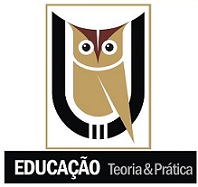Representations of homosexuality and prejudice against homosexuals of college students in a course in biology education in Mozambique
DOI:
https://doi.org/10.18675/1981-8106.vol24.n45.p119-143Keywords:
Social Representations. Sexual prejudice. Homosexuality and homosexuals. Teaching Biology.Abstract
This article analyzes the representations (explanations) of future biology teachers about the nature of homosexuality and the type of prejudice expressed against homosexuals. For this we applied questionnaires to 127 students of both sexes from first to fourth year biology course in Pedagogical University in Maputo. The results showed a bipolar representation of homosexuality reasoned explanations psychosocial and biological, but also a widespread prejudice. The analysis of the type of anchoring bias allowed to classify students into two groups: the first consisting of 59 students (46.5%) classified as flagrantly-prejudiced by adhering strongly to explanations of biological, had a higher rejection of proximity to homosexuals, low expression positive emotions toward homosexuals and high expression of negative emotions. The second group (n = 68, 53.5%) were classified as subtly prejudiced and adhered to psychosocial explanations, had a moderate rejection proximity / contact with homosexuals, low expression of positive and negative emotions toward homosexuals. However only religious and psychosocial explanations of homosexuality significantly predicted the kind of prejudice expressed against homosexuals.Downloads
Additional Files
Published
How to Cite
Issue
Section
License
Authors who publish in this journal agree to the following terms:
a) Authors assign copyright to the journal, with the work simultaneously licensed under the Creative Commons Attribution License that allows sharing of the work with acknowledgment of authorship and publication in this journal.
b) The policy adopted by the Editorial Committee is to assign copyright only after a period of 30 months from the date of publication of the article. After this time, authors interested in publishing the same text in another work must send a letter to the Editorial Committee requesting the release of the assignment of copyright and wait for a response.
c) This journal provides public access to all its content, since this allows greater visibility and reach of published articles and reviews. For more information on this approach, visit the Public Knowledge Project, a project that developed this system to improve the academic and public quality of research, by distributing OJS as well as other software to support the public access publication system to academic sources. The names and email addresses on this website will be used exclusively for the purposes of the journal and will not be available for other purposes. This journal provides open any other party  This work is licensed under a Creative Commons License
This work is licensed under a Creative Commons License











